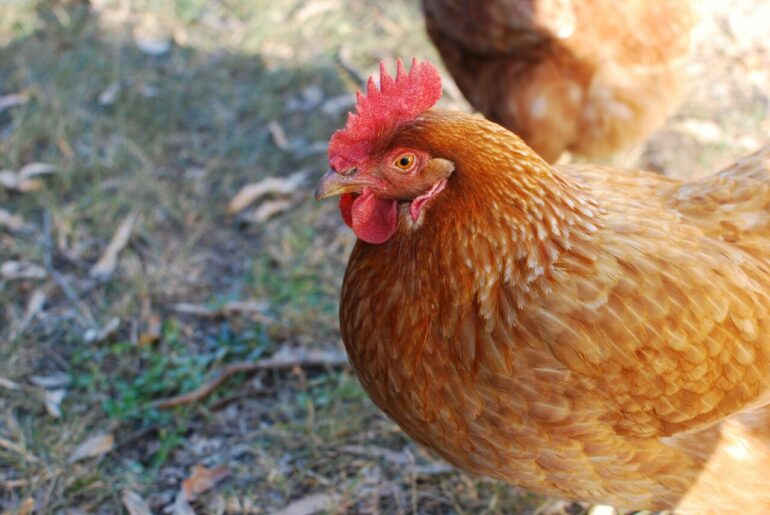Vaccinating household chicken flocks can increase availability and consumption of eggs and meat, leading to better growth of young children in agriculture-dependent families in rural Kenya.
A two-part study found that vaccination for Newcastle disease, the most common cause of mortality in village chickens, resulted in increases in household flock size and subsequent dietary increases in protein and micronutrient rich foods for young children. Most importantly, this change in diet led to increased growth of children as compared to children in homes where chickens were not vaccinated.
The research is especially critical since impaired growth and child development from poor nutrition, also known as child stunting, is common in rural Kenya and other lower income countries.
“We had noticed families who fed their children high-protein foods had better outcomes in terms of preventing stunted growth in children, and we wanted to look for ways to improve growth given the resources they already had,” said researcher Dr. Elkanah Otiang, who led the studies as a Washington State University and University of Nairobi graduate student in his home nation under the Kenyan Medical Resarch Institute—Centre for Global Health Research in western Kenya.
The study, published in Proceedings of the National Academy of Sciences, describes the results of a randomized clinical trial that included more than 500 households that owned chickens and assessed the diet and growth parameters of over 700 children. Researchers compared diets, heights and weights of children from households that used the vaccine and parasite control drugs in their flocks to households that only used parasite controls.
Over the course of the 18-month study, children in homes where the Newcastle vaccine was used were shown to consume 24% more high protein foods and improve their height for age, the key metric for assessing childhood stunting. Children from vaccinated houseolds saw a 1.16% increase in height compared to those who were not vaccinated; weight was increased by 0.54%.
“This study is impactful as it shows that a low-cost intervention on a commonly held animal livestock resource can translate to improved childhood growth—in line with the United Nations goal to dramatically reduce child growth failure”, said Guy Palmer, WSU’s senior director for global health and professor in pathology and infectious disease. “Notably, decisions regarding chicken flock management and child diet are both under the control of women in many rural settings, providing a direct pathway to improve nutrition and growth.” Palmer helped coordinate the study with fellow WSU professor Jon Yoder.
Otiang said the research is particularly significant because the vaccine is relatively affordable and widely available, including in Kenya. It gives Kenyans an opportunity to improve the health of children and animals using existing resources without major lifestyle changes or financial burden.
“It’s important because it gives a unique linkage to the health of humans and animals,” Otiang said. “As a veterinarian, it’s been a very interesting journey working with animals and linking it to human health—not only on the disease side but on livelihoods, nutrition and socioeconomics; this study provides information so we can improve in those areas.”
This study was conducted by WSU’s Paul G. Allen School for Global Health in collaboration with researchers at the Kenyan Medical Research Institute–Centre for Global Health Research and the University of Nairobi, Kenya.
More information:
Elkanah Otiang et al, Vaccination of household chickens results in a shift in young children’s diet and improves child growth in rural Kenya, Proceedings of the National Academy of Sciences (2022). DOI: 10.1073/pnas.2122389119
Provided by
Washington State University
Citation:
Chicken vaccination shows benefits for nutrition, growth in Kenyan children (2022, June 8)



